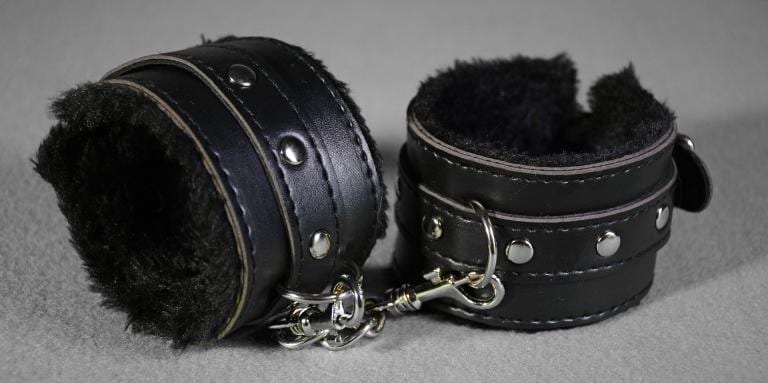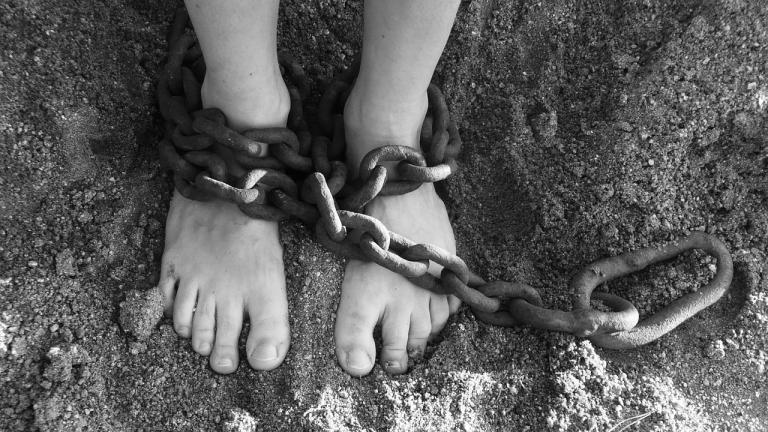One of the things that made it difficult for me to end my relationship with my alcoholic husband was a feeling that I was being unfair to him. After all, if alcoholism is an illness and drinking is a symptom of the disease then how can you hold someone responsible? If it’s not a voluntary thing, then it seems that the person isn’t really culpable for their behaviour.
Certainly he didn’t seem to think that he was free to stop drinking. He consistently spoke and acted as if he didn’t have a choice, as if there were no other possible solutions to his problems than the one that he was pursuing. Even when he could see the harmful effects of his alocholism (which sometimes he could) he felt trapped. Getting help seemed impossible, and when finally a court ordered him into addictions counseling he complained that it wasn’t helpful — that the resources which were supposed to aid him didn’t actually make a difference.
Moral Immunity Disorder
Abuse is often accompanied by addiction or mental health problems, which can make it confusing for people who have to deal with it. When somebody is suffering, is ill, our naturally insinct is to go to them and help them to feel better. If a person is inclined to be caring and understanding, these virtues can make them more vulnerable to abuse and more reluctant to get out.
I remember at one point, recently, my ex turned to me and demanded that I exercise some of my “famous compassion” towards him. I walked out feeling like shit. For one thing, I had exercised a tremendous amount of compassion over the years and I knew that it hadn’t actually done much to help him. For another, I felt bad about myself for not being able to give him more. I’d spent enough time with Alanon material to know that these feelings were disordered, so I didn’t act on them, but I felt them nonetheless.
This is the terrible truth about abusive behaviour: people do not put up with it because they are weak. They put up with it because the are strong. The strength of your love for the other person becomes the chain tightening around your neck, and abusers (whether consciously or unconsciously) know how to exploit this.
It kind of functions like an immunity disorder. In most cases, rushing to the side of a sick person, holding their hand, catering to their needs, and caring for them is exactly the right thing to do to help them get better. But if a person’s immune system is severely compromised these ordinary acts of love can become dangerous, leaving the person vulnerable to infection. It becomes necessary to use protective equipment, and in some cases the person has to be isolated from everyone except for medical professionals.
With addiction, the addict becomes increasingly incapable of receiving love without involving those who love him in his disease. If you want to spend time with them, they want you to drink with them — after all, it’s lonely to be at a party of one. Helping them access their preferred substance becomes a hallmark of your love for them, and refusing to do so is evidence that you are callous and cruel.
At bottom, though, it’s not so much about the substance itself as it is about the addict’s need to feel that their addiction is okay, that it isn’t really causing harm. As soon as they have to acknowledge the harm they feel horrible — and the longer the addiction has been going on, the more this is true. A great, looming cesspool of shame and guilt lurks in a sequestered corner of their mind and if they catch a glimpse of it they feel desperate and overwhelmed by the magnitude of the task that would be required to clean up the mess. In most cases, these feelings cause them to turn back to their addiction for solace. Hence the frequent claims of addicts that people who confront them or try to intervene are “making them” use.
What the addict wants is for you to behave as if everything is normal and okay so that they can get on with their addiction in peace. Meaning that even if you don’t buy for them and don’t use with them, you’re still reinforcing the addictive pattern.
In other words, the normal things that people do in order to demonstrate love and compassion become avenues through which the addiction flourishes. If you try to love the addict by holding them accountable, this makes them feel ashamed and unloved — so they drink. If you try to love them by being patient and forgiving then they are able to more easily entertain the delusion that their addiction isn’t a problem — so they drink.
This is the reason why so many recovered addicts say things like “I’m grateful to the woman who had the courage to leave me.” Because the kind of love that you show by staying is inevitably converted into enabling. That’s the nature of the disease.
The Forty Year Old Toddler
But it still feels unfair. How can you take away a person’s entire life — their spouse, their children, their home — because of behaviours that may not even be within their control? If the person is using alcohol to self-medicate for underlying mental health or neurological condition (which is often the case) they may literally feel trapped: they can’t live with the synmptoms of their underlying illness, and the only medication that seems to help makes them eratic, unproductive and abusive.
Ironically, having a close relationship with an addict, and having good communication, makes it harder to see that their behavour is not tolerable. You constantly hear their perspective, a perspective in which they are the victim of forces beyond their control and they are making the best of the hand that they’ve been dealt.
If you talk about consequences or accountability, they beg you to be patient — and whenever you agree to do so they reinforce your forebearance with a lavish show of affection, and even with efforts to change. These are inevitably short lived. And as the abuser becomes more comfortable in the conviction that consequences and boundaries aren’t really going to be enforced, the efforts to do better become increasingly nominal and passing.
A lot of the literature I’ve read on the subject treats this as a deliberate manipulative strategy, as if the addict is some sort of spidery villain carefully crafting a web in which to hold on to their victim so they can suck her dry. But I’m not sure that it is. The effect is certainly manipulation, but the tactics are fundamentally similar to those which small children employ to get their way: claim to have an owie, throw a tantrum, make demands, unreasonably refuse obvious solutions to problems, and if you get your way after a long, drawn-out battle then shower mommy with kisses and hugs.
I suspect that many addicts are not so much deliberately abusive or manipulative as they are childish. They don’t know how to moderate their emotions, and so they unconsiously resort to the same basic strategies that all of us used when we were three.
But they’re not three. You can’t put them in time-out or send them to your room. You’re not their mother.
Just Getting What You Deserve
For a long time, this was the dilemma that tormented me: how could I, in justice, leave my husband when he seemed to have so little control over his own actions? How could I punish him for choices he made if he felt that he didn’t have the freedom to do anything else?
Finally, a FaceBook comment from an old friend made me look at the situation in a fundamentally different way. My friend, who is a clinical social worker and therapist, said something like “I don’t find it necessary to consider questions of blame. If a person’s actions are causing harm then the question is, how do we stop the harm?”
At first I found this a confusing statement. How could questions of blame not be relevant? Wasn’t culpability the crux of moral accountability?
It took me a long time to finally understand what my friend was saying. My kids had a right, in justice, to be safe. I had a right to be safe. Our legitimate rights were not being respected, and the only person in a position to secure those rights was me. And the only way to do it was to hold my husband accountable.
It had nothing to do with punishment. The justice of my actions wasn’t bound up in his mental state. The question of whether he is truly responsible for the harm that he has caused is between him and God, and I am neither capable of judging, nor is it my job to do so. But it is my job to ensure justice for those who have been harmed, and I can do that without having the ability to read hearts or judge souls.
I simply have to think not of what he deserves, but of whether my children and I deserve to live in fear.
Image by WilliamCho on Pixabay












